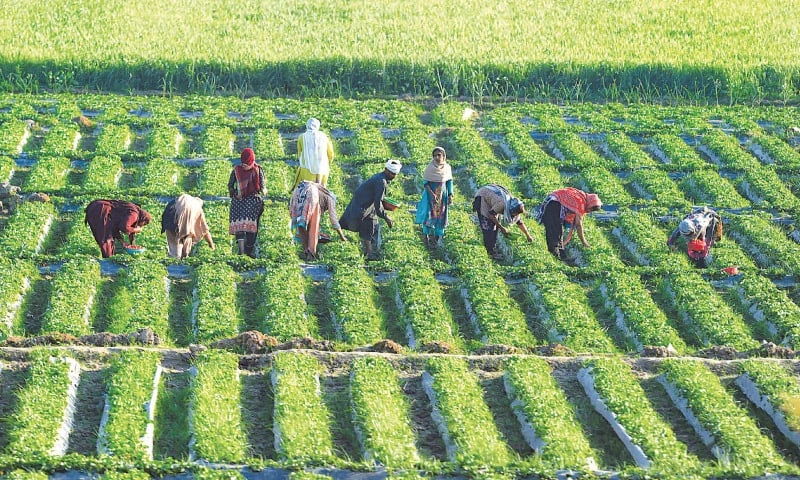Agri-crisis in the offing as IMF conditions loom large over Pakistan

Stay tuned with 24 News HD Android App

The agriculture sector in Pakistan is now facing severe challenges as the government prepares to implement the latest International Monetary Fund (IMF) conditions, threatening to dismantle the remaining subsidies and support systems for farmers.
According to a report, these conditions include the complete removal of subsidies in the agriculture sector, the elimination of minimum support prices, and the imposition of heavy taxes. The report highlights the alarming parallels between Pakistan’s situation and the economic experiments carried out in South American and African countries in the past.
In the 1980s, international think tanks identified food and water as the only sources of income that would never run dry. Major corporations, dubbed as ‘economic terrorists’, began to target smaller economies by introducing seeds that could not be reused for future crops and pressuring small farmers to sell their lands to large corporate farms.
This systematic exploitation reaches a point where the entire agricultural landscape of Pakistan may be reshaped. Farmers have already been struggling to cope with the rising production costs and lack of subsidies or government support, forcing them to limit farming to personal needs. This shift is resulting in food shortages, skyrocketing prices, and constant scarcity, mirroring the experiences of small farmers in Western countries, where corporate farming has long dominated the sector.
As corporate entities gain control over agriculture in Pakistan, local farmers are being pushed out of the market. The situation is exacerbated by companies that export local produce to international markets, repackaging them under foreign brands and selling them back to the country at inflated prices. This has already been observed in the rice industry, where Pakistani rice is exported to Dubai by "local companies" and then rebranded and sold by Indian companies worldwide.
As these policies come into play, the local farmer will suffer, and the economy will become increasingly dependent on international corporations. Pakistan’s leaders, meanwhile, may find themselves in luxurious residences abroad, while the people back home grapple with food shortages and skyrocketing prices. The looming crisis in the agriculture sector is no less than economic suicide for the country, while for the corporations, it is nothing short of a profitable venture.
Political parties appear to be moving forward with this plan though the major parties resisted agricultural taxes due to rural voter bases in Sindh and Punjab, the pressure from international actors may push them to complete this transition. The initial blow to the agriculture sector was struck during General Pervez Musharraf's regime, with corporate farming agreements with Arab and other nations. It seems the current government is going to hammer the last nail in the coffin.
